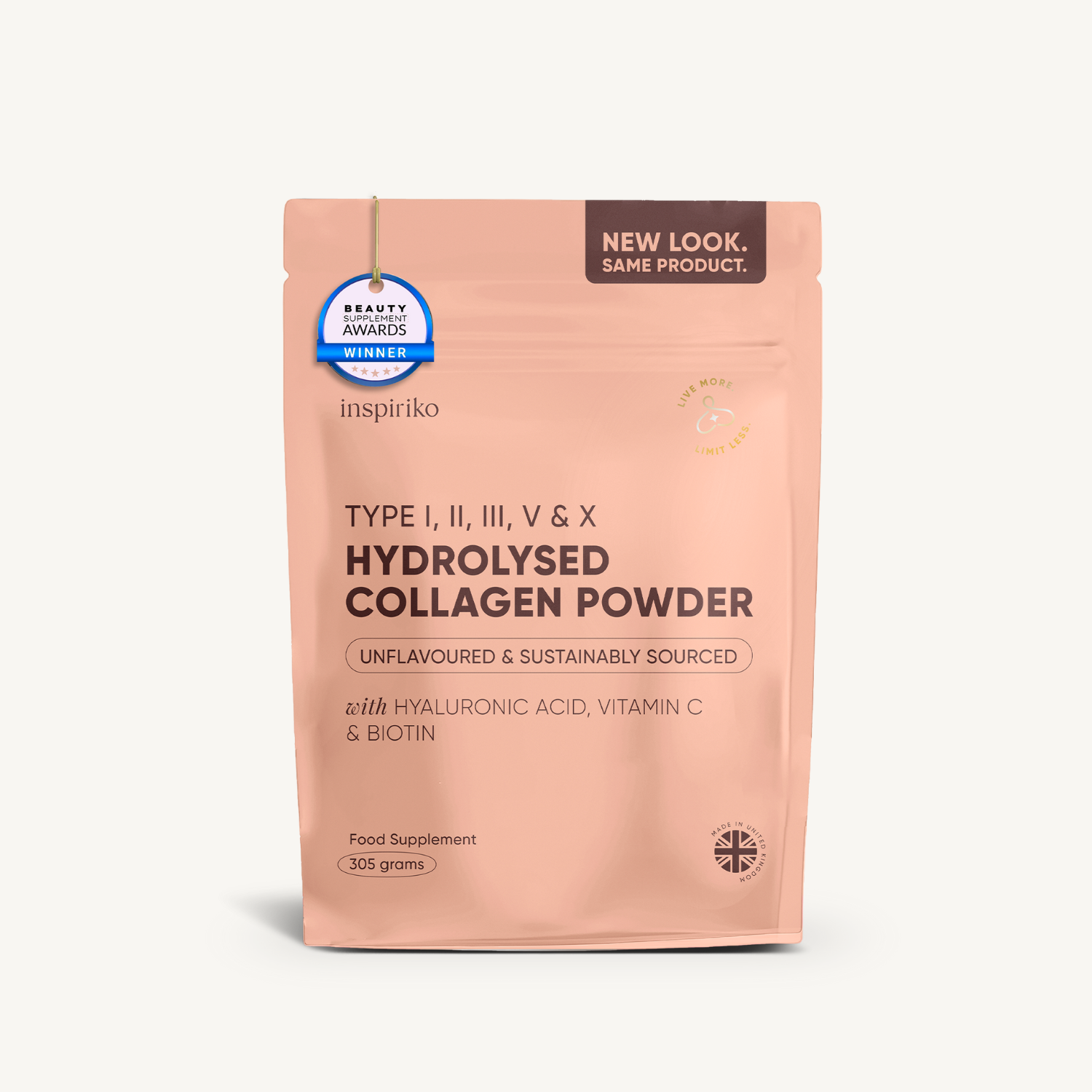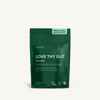If you’ve been hearing more about PCOS lately, you’re not alone. Polycystic Ovary Syndrome (PCOS) affects up to one in ten women of reproductive age—and it doesn’t necessarily stop affecting us when we hit 40. In fact, for many of us navigating perimenopause or menopause, lingering or new PCOS symptoms can feel like an unwelcome echo of our younger years.
But here’s the truth: while PCOS might be complex, it’s far from untameable. The first step in managing it. at any age, is understanding where it comes from. The causes of PCOS aren’t straightforward. It’s not about one rogue hormone or one unhealthy habit. In this article, we’ll unravel that web for you. We’ll explore what the latest science says about PCOS causes and key risk factors—so you can make informed decisions, spot warning signs early, and feel more in control of your health.
What Is PCOS and How Does It Affect the Body?
Polycystic Ovary Syndrome is more than just an ovarian issue—it’s a systemic condition that affects how your body processes hormones, insulin, and even inflammation (1). Clinically, PCOS is characterised by at least two of the following:
-
irregular ovulation or missed periods, elevated levels of androgens (male-type hormones),
-
and ovaries with multiple small follicles often seen on ultrasound.
Hormonal imbalances are at the core of the condition. Many women with PCOS have elevated levels of luteinising hormone (LH) and androgens such as testosterone, which interfere with the normal development of eggs and disrupt ovulation. This hormonal dysregulation explains common symptoms like irregular periods, acne, excess facial hair, or thinning scalp hair.
PCOS is increasingly recognised as a metabolic disorder. A significant number of women with Polycystic Ovary Syndrome - up to 70% - also have insulin resistance, which means their cells don’t respond properly to insulin. creating a cycle that perpetuates the condition (2). What’s more, chronic low-grade inflammation plays a hidden but significant role. Studies suggest that inflammation in PCOS contributes to insulin resistance, ovarian dysfunction, and other long-term metabolic disturbances (3).

What Are the Main Causes of PCOS?
At the centre of PCOS lies a profound hormonal imbalance, which interferes with the delicate rhythm of your menstrual cycle. Elevated luteinising hormone (LH) levels, often found in PCOS, can throw off the body’s ability to ovulate consistently. Even if cycles remain somewhat regular, ovulation may not always occur, leading to hormonal fluctuations that can feel unpredictable and overwhelming.
Beyond physical symptoms, hormonal imbalance in PCOS can profoundly affect mental well-being. Studies have shown a higher prevalence of mood disorders, including anxiety and depression, among women with PCOS (4). These aren’t just side effects—they’re part of the condition and deserve attention.
🌿 Tip from Inspiriko: Struggling with hormonal ups and downs? Supplements like our Perimenopause & Menopause Support blend - formulated with Ashwagandha KSM-66 can support hormone balance and emotional well-being during fluctuations.
Genetics & Family History
While lifestyle plays a significant role in how PCOS manifests, your genes may lay the groundwork. Research suggests that PCOS tends to run in families, indicating a strong genetic component (5). If your mother or sister has been diagnosed, your risk of developing the condition is significantly higher. These inherited traits may influence how your body processes insulin, produces hormones, or responds to inflammation—all of which can tip the scales toward PCOS.
But having a family history doesn’t guarantee you’ll experience the condition in the same way—or at all. Genetics may open the door, but environment and lifestyle walk through it. That’s why even with a predisposition, focusing on a healthy diet, regular movement, and mindful stress management can make a meaningful difference in how your body copes. Knowing your risk allows you to take proactive steps early, especially as you approach midlife hormonal shifts.

Chronic Inflammation
Chronic, low-grade inflammation often simmers quietly beneath the surface in women with PCOS. This inflammation doesn’t cause immediate pain, but over time it contributes to insulin resistance, weight gain (6), and disrupted hormone production. Inflammatory markers are often elevated in women with PCOS, which suggests the immune system is constantly on high alert—even when there’s no acute threat.
This type of inflammation can be aggravated by modern diets high in processed foods, sugar, and trans fats, as well as environmental toxins. The good news is that PCOS and inflammation are modifiable. Anti-inflammatory foods - like leafy greens, berries, turmeric, and omega-3-rich sources - can help cool this internal fire and so does reducing sugar (7). Daily movement, better sleep, and natural anti-inflammatory supplements (like magnesium or curcumin) can also play a role in bringing the body back into balance. Tackling inflammation at its root may not cure PCOS, but it can significantly reduce its impact.
Check out the hidden cause behind PCOS weight gain!
Lifestyle Factors That May Increase Risk
While lifestyle choices don't cause PCOS outright, they significantly influence its development and severity. A sedentary lifestyle and diets high in processed foods and sugars can exacerbate insulin resistance, a key factor in PCOS. Regular physical activity and a balanced diet rich in whole foods can improve insulin sensitivity and help manage symptoms .
Chronic stress and inadequate sleep also play roles in hormonal imbalance. Elevated stress levels can increase cortisol, further disrupting hormonal harmony. Prioritising stress management techniques, such as mindfulness and ensuring quality sleep, can support hormonal health and overall well-being.
Movement matters—but so does micronutrient support. Chelated Magnesium Glycinate from Inspiriko can help support better insulin sensitivity and restful sleep, both of which are essential for managing PCOS.

Environmental & Endocrine Disruptors
Endocrine-disrupting chemicals (EDCs) are synthetic or natural compounds that interfere with the body’s hormonal system (8). These disruptors can mimic, block, or alter hormone production and signalling—throwing your body’s delicate hormonal balance off course. For women with PCOS, who already face hormonal irregularities, this interference can make symptoms worse or more difficult to manage.
You’ll find EDCs in a wide range of everyday products, including:
-
Plastics containing BPA (bisphenol A)
-
Phthalates found in fragrances, cosmetics, and personal care products
-
Pesticides on non-organic produce
-
Flame retardants in furniture and household items
Over time, exposure to these substances can disrupt insulin signalling, increase inflammation, and impact androgen levels—all of which are key players in PCOS development and severity.
How to Reduce Exposure
While we can’t eliminate all environmental toxins, we can make smarter choices to reduce exposure:
-
Switch to glass or stainless steel for food storage, avoiding plastics especially when heating.
-
Choose fragrance-free or EDC-free personal care and cleaning products.
-
Opt for organic produce when possible, especially for high-residue fruits and vegetables (like apples, strawberries, and spinach).
-
Filter your tap water to reduce contaminants like heavy metals or pesticide residues.
Every small swap adds up. Protecting your hormonal health in PCOS from environmental stressors doesn’t require perfection - it simply requires awareness and action.

How Inspiriko Empowers You to Take Control of PCOS Naturally!
Living with or managing PCOS is not about chasing symptoms—it’s about listening to your body and giving it what it truly needs. And that begins with awareness. The earlier we understand our risk factors, the more power we have to intervene naturally, thoughtfully, and effectively.
Whether you're newly diagnosed, suspect you might have PCOS, or simply want to support hormonal health as you navigate your 40s and beyond, you have options. You’re not broken—you’re biologically intricate, and that’s something to embrace. At Inspiriko, we believe in using the power of nature and science to support your journey with PCOS. Explore some of our hormone-supportive and metabolism-balancing products:
-
Perimenopause & Menopause Support – packed with clinically researched adaptogens like Ashwagandha KSM-66 and hormone-balancing phytoestrogens to manage fatigue, mood shifts, and hot flushes.
-
Chelated Magnesium Glycinate – supports insulin sensitivity, calms the nervous system, and helps balance mood and sleep.
-
Love Thy Gut – a nourishing digestive blend that helps lower inflammation and improve nutrient absorption, critical for hormonal health.
By nourishing your body with the right ingredients, moving regularly, managing stress, and reducing toxin exposure, you're setting the stage for vibrant health.
FAQs
1- Can PCOS be caused by problems in the brain, like the hypothalamus or pituitary gland?
2- Is it possible to develop PCOS later in life, even if I had regular cycles when I was younger?
3- Can chronic stress cause PCOS?
4- Does PCOS Cause Pain?
Related Products
References for the blog
-
Azziz, R. (2014). Polycystic Ovary Syndrome. The Journal of Clinical Endocrinology & Metabolism, 99(4), 1142–1145.
https://academic.oup.com/jcem/article-abstract/99/4/1142/2537201 -
Diamanti-Kandarakis, E., & Dunaif, A. (2012). Insulin Resistance and the Polycystic Ovary Syndrome Revisited: An Update on Mechanisms and Implications. Endocrine Reviews, 33(6), 981–1030.
https://pubmed.ncbi.nlm.nih.gov/27667654/ -
Patel, S. (2021). Polycystic Ovary Syndrome (PCOS), an inflammatory, systemic, lifestyle endocrinopathy. International Journal of Molecular Sciences, 22(5), 2734.
https://www.mdpi.com/1422-0067/22/5/2734 -
Podfigurna-Stopa, A., Luisi, S., Regini, C., Katulski, K., Centini, G., Meczekalski, B., & Petraglia, F. (2015). Mood disorders and quality of life in polycystic ovary syndrome. Gynecological Endocrinology, 31(6), 431–434.
https://doi.org/10.3109/09513590.2015.1009437. -
Ajmal, N., Khan, S. Z., & Shaikh, R. (2019). Polycystic ovary syndrome (PCOS) and genetic predisposition: A review article. European Journal of Obstetrics & Gynecology and Reproductive Biology: X, 3, 100060.
https://doi.org/10.1016/j.eurox.2019.100060 -
Awoke, M.A. et al. (2021). Weight gain and lifestyle factors in women with and without polycystic ovary syndrome. Human Reproduction, 37(1), pp. 129–141. doi:10.1093/humrep/deab239.
- Roberts, J.S. et al. (2017). High-fat high-sugar diet induces polycystic ovary syndrome in a rodent model. Biology of Reproduction, 96(3), pp. 551–562. doi:10.1095/biolreprod.116.142786.
-
Fowler, P. A., Bellingham, M., Sinclair, K. D., Evans, N. P., Pocar, P., Fischer, B., Schaedlich, K., Schmidt, J.-S., Amezaga, M. R., Bhattacharya, S., Rhind, S. M., & O’Shaughnessy, P. J. (2012). Impact of endocrine-disrupting compounds (EDCs) on female reproductive health. Molecular and Cellular Endocrinology, 355(2), 231–239.
https://doi.org/10.1016/j.mce.2011.10.021






